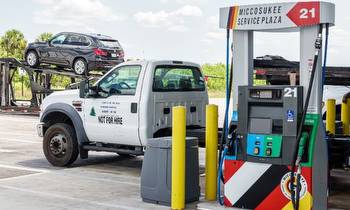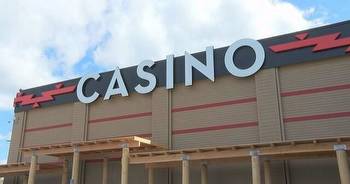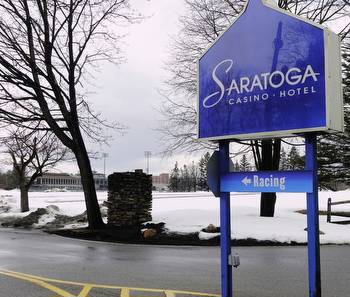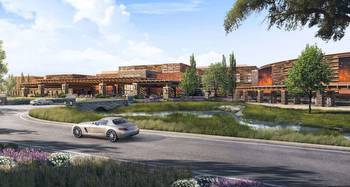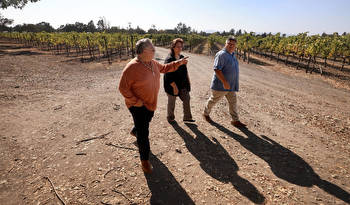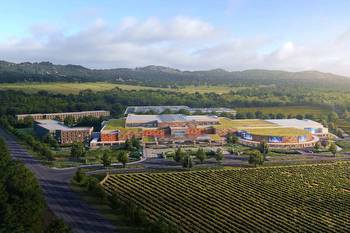Shinnecock Double Down on Casino Plans

The Shinnecock Indian Nation is upping the ante on its proposed casino, trying its odds that it could win approval to build a Las Vegas-style gaming facility off of its Southampton territory.
Tribal leaders were among 31 entities that responded last month to a request for information from the New York State Gaming Commission to gauge interest in contracts for three Class III gaming facilities — full-fledged casinos with live dealers — that could be awarded next year for the downstate region. The development comes nearly a year after Shinnecock leaders announced their third bid to build a casino on tribal territory in Southampton, albeit a Class II gaming facility that is limited to slot machines and electronic gaming tables — no live dealers, same as Long Island’s only other casino, Jake’s 58 in Islandia.
“The Shinnecock submitted information on why it should be considered for a commercial, Class III gaming license in the New York Metropolitan area,” Randy King, Shinnecock tribal vice chair, told Dan’s Papers. “We will still continue our push for a modest facility on the East End of Long Island on our territory in Southampton. But also we’re seeking one of these licenses or the ability to negotiate a Class III tribal facility somewhere on Long Island.”
In addition to the Shinnecock, casino operators responding to the state’s query included MGM Resorts International, Wynn Resorts, Bally’s Corporation and the Suffolk County Off-Track Betting Corporation, which operates Jake’s 58. Multiple civic associations in northeastern Queens also submitted letters opposing the area surrounding CitiField as a potential location for one of the casinos.
The three downstate contracts were among seven for casinos statewide that New Yorkers voted to allow in a 2013 referendum that amended the state constitution to approve non-tribal casinos for the first time. The proposal was largely supported on Long Island with voters approving it by two-thirds of the vote. Fifty-seven percent of voters statewide gave the state the go-ahead.
The Shinnecock, which previously cleared five acres of land to build a casino on tribal land in 2003 and then tried reviving that stalled effort a decade ago after winning federal recognition, is betting the third time’s a charm. With a National Indian Gaming Commission approval in hand, all that stands in the way are environmental approvals for the facility planned on its land.
“We feel that we have all our ducks in a row this time,” Shinnecock Council Chairman Bryan Polite told reporters upon laying down his cards on the casino plan last year.
Dubbed Shinnecock Casino Hamptons, tribal leaders did not show their hand on the revenue the casino is anticipated to generate, although it is expected to significantly improve the tribe’s finances. The Shinnecock hope to parlay the cash infusion into helping its historically impoverished population. But King noted that the coronavirus pandemic-induced supply chain issues may slow the timeline for construction, which he expects to start this year and is projected to take 18 to 25 months to complete.
The casino is one of several projects the Shinnecock have in the works to raise revenue. It’s currently in a legal battle with the state Department of Transportation over a pair of electronic billboards that the tribe dubbed monuments and built on tribal land on either side of Route 27. It’s also on track to open Little Beach Harvest, what’s likely to be Long Island’s first legalized recreational marijuana dispensary, this year. And last summer the tribe voted to approve construction of a 200-room hotel-resort and convention center, a gas station and convenience store at the tribe’s Westwoods property in Hampton Bays adjacent to the billboards.
The Shinnecock are working with Tri-State Partners on the casino plan.
“Over the past several years we have witnessed the suffering of the Shinnecock Nation and also seen the opportunity to lift their people from the poverty they currently live in,” Tri-State Partner and Managing Member Jack Morris said during the February 2021 announcement. “This will be a property Long Island residents will enjoy visiting, while enabling the Shinnecock Nation to take advantage of opportunities other members of Native American nations have harnessed.”
Neighbors and local lawmakers have raised concerns about how building a casino in Southampton would worsen the legendary gridlock that routinely grinds traffic to a crawl on two-lane Montauk Highway, especially during peak summer tourist season.
“The traffic is already not moving in the morning and afternoon,” Southampton Town Supervisor Jay Schneiderman has told Dan’s Papers. “It couldn’t handle that type of use.”
The tribe’s request came shortly before the state gave approval for online bookmakers DraftKings, Caesars, FanDuel and Rush Street Interactive to start accepting bets as of January 8. The move made New York the largest state to approve online sports betting and one of 18 states where it is legal to place sports bets remotely through online sportsbooks. New York previously allowed on-site sports wagering at casinos in 2019.
It’s been widely reported that the online sports wagering approvals have increased pressure on the state to speed up the timeline for approving the downstate casino contracts. The Shinnecock maintain that since the federally recognized tribe should have been allowed to negotiate a casino with the administration of disgraced ex-Gov. Andrew Cuomo — who resignedsexual harassment allegations and is reportedly self-exiled in the Hamptons — it deserves one of the contracts.
“The Shinnecock have been historically shut out from negotiating its federal right to open a gaming facility apart from its territory in Southampton,” King said. “We have a right to negotiate a compact with the State of New York, just like upstate New York tribes that have multiple casinos each. We have the same right to do that to negotiate a facility and to take land into trust and to have property that a gaming facility is constructed on … but the Cuomo administration refused our pleas to negotiate a gaming compact.”
Will the tribe hit the jackpot this time? Place your bets.
~With Bill Parry, Reuters and Lee Meyer








